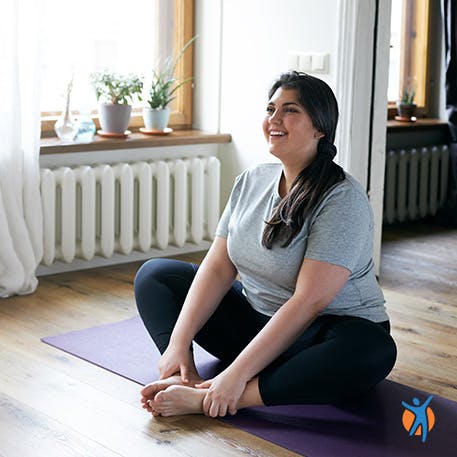
SHARE THIS ARTICLE:
When you suffer from pain, lack of sleep can be yet another symptom that stops you living life to the full. But even if you have found a pain relief solution that allows you to manage your pain levels well enough that you can get some deserved rest, there’s no denying that we live in stressful, turbulent times, which can also interrupt our sleep.
And with technology and constant news alerts, we’re more plugged in to developments unfolding around the... world than ever before. All of this can increase our stress levels.
In fact, a 2018 stress survey commissioned by the Mental Health Foundation found that 74% of UK adults felt so stressed at some point over the previous year that they felt overwhelmed or unable to cope.
When stress goes unchecked, it can negatively affect your life in various ways. One particularly unpleasant potential effect of chronic stress is poor sleep. Those with chronic stress have reported sleeping less, having poorer sleep quality and finding it harder to function well during the day.
If you’re a chronic pain sufferer, feeling stressed and sleeping badly is the last thing you want to add to the list.
The good news though, is that we have much more control over our moods than we might imagine – so while we may not be able to completely eliminate stress from our lives, we can certainly feel less stressed. And when we feel less stressed, the quality of our sleep – and of our lives overall – is likely to improve.
One of the best tools we have for moderating our response to stress and improving our sleep and our lives – along with other lifestyle adjustments like exercising – is mindfulness meditation. Keep reading to learn more about this tool, and how you can make it work for you.

The positive effects of mindfulness can include:
- Better sleep
- Less stress and fewer negative emotions
- More positive emotions
- A stronger immune system
- Improved memory and focus
- Enhanced relationships
- Greater resilience
- Improved creativity
How mindfulness helps to improve sleep and reduce anxiety
The mechanics of mindfulness are complex and probably require a lot more research before they can be fully understood, but what we do know is that mindfulness meditation can significantly improve sleep quality. We also know that it can increase the relaxation response, helping to reduce worry and rumination and alleviate mood disturbances.
It may well be that these two things are related – which will make perfect sense to anyone who’s ever lost a night’s sleep to worrying about that big presentation they have to give the next morning.
Meditation techniques for better sleep and less anxiety
If you’re looking to decrease your overall stress levels – and therefore feel less anxious on a day-to-day basis as a result – taking up a regular mindfulness meditation practice is probably the best way to go. A study focusing on medical students (who have higher rates of depression and psychological distress than the general population) found that 30 days of 10-20 minutes of daily mindfulness meditation significantly decreased perceived stress, and significantly increased general wellbeing.
You can find 10- to 20-minute guided... mindfulness meditations – some even specifically created for tackling anxiety and sleep issues – on platforms like Spotify and YouTube, and in meditation apps like Headspace. Alternatively, you can practice mindfulness meditation on your own by simply sitting quietly for 10 to 20 minutes, acknowledging any thoughts that come into your mind before lightly releasing them, staying present in the moment.
How to empty your mind for sleep
If you’re experiencing sleep issues that are related to stress, then the above approach may also help you. If, however, you only occasionally have trouble sleeping, you can try the following short meditation, called a body scan, to help you unwind as you lie in bed:
- Close your eyes.
- Take a few deep breaths.
- Bring your attention to the top of your head.
- Slowly start to scan down your body, noticing any discomfort or tension that may be present.
- Don’t judge or try to change any discomfort or tension you encounter. Simply notice it, and then continue to scan down your body until you reach the tips of your toes.
A body scan meditation is one of the best ways to clear your mind for sleep, so once you complete it, you should be relaxed and ready for the land of Nod.
So with Voltarol helping to relieve your aches and pains, and mindfulness helping to settle your anxious mind, here's hoping for a good nights sleep.

SHARE THIS ARTICLE:
Treatment by pain type
Learn all about the causes, symptoms, and pain treatments for the type of pain you’re experiencing so you can get back to doing those little things that bring you joy.
















